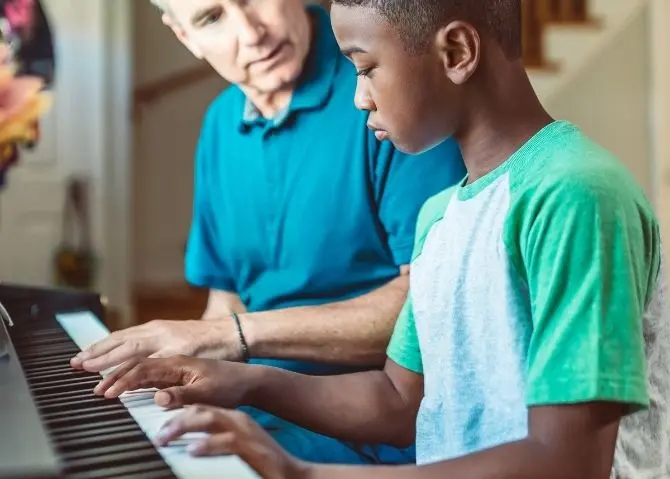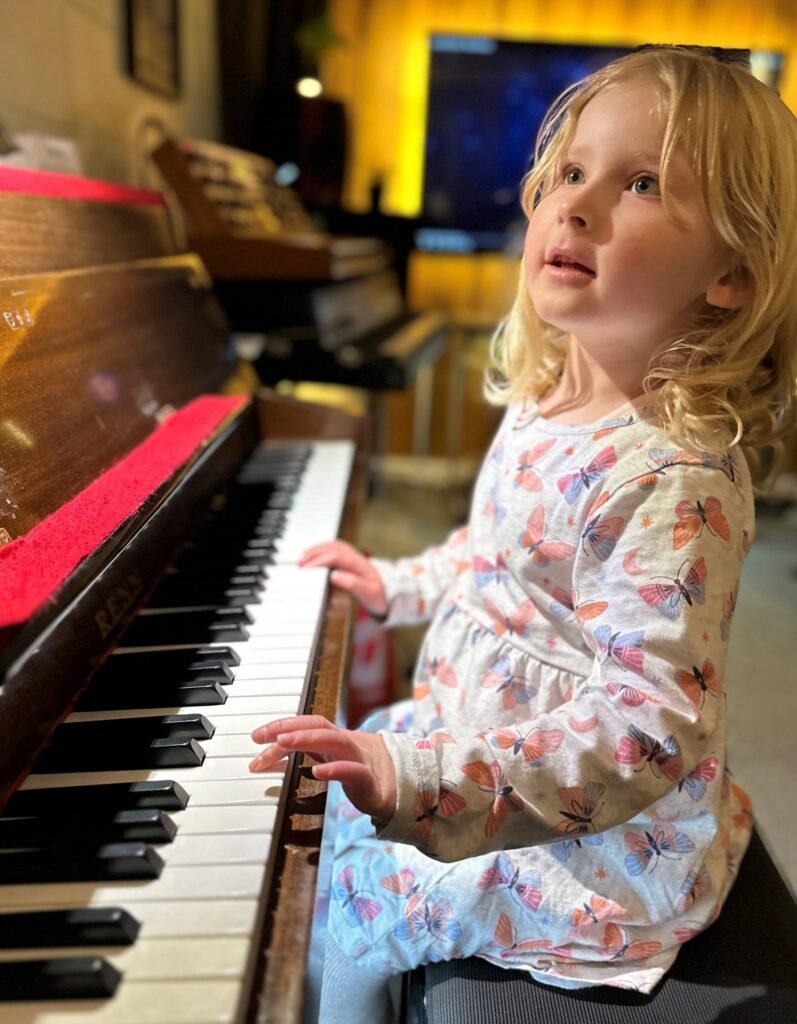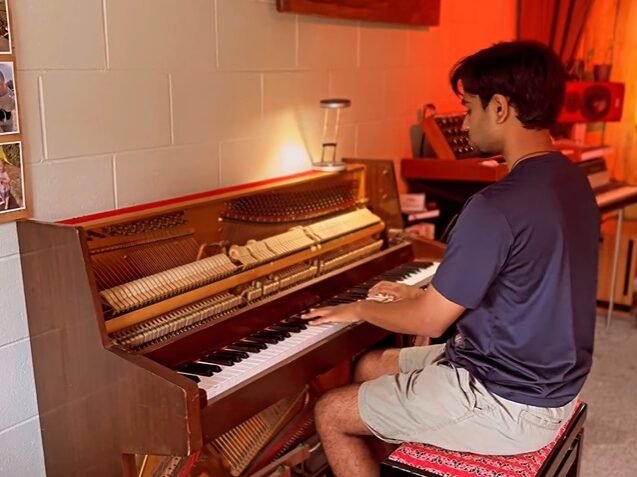Starting piano lessons can be one of the most rewarding journeys in a child or adult’s life. But when is the ideal time to begin? Whether you’re a parent in Auckland looking to introduce your child to the joys of music or an adult hoping to learn a new skill, this guide explores the factors to consider when determining the best age for piano lessons.
Factors Determining the Best Age for Piano Lessons
The question of when to start piano lessons doesn’t have a one-size-fits-all answer. While some children show a natural aptitude for music at a young age, others may take more time to develop the cognitive and motor skills required for learning an instrument. Let’s explore the critical factors that influence the best age to begin piano lessons.
Physical Readiness
Playing the piano requires a certain level of physical development. For younger children, hand size and finger strength are important considerations. Most experts suggest waiting until a child’s hands are large enough to span five keys comfortably. Typically, this occurs around the age of five or six.
However, advancements in piano teaching methods have made it possible to start earlier. For example, miniature keyboards or special exercises can help younger students adapt to the physical challenges of the instrument. Parents should also observe whether their child has developed sufficient fine motor skills, such as the ability to grip a pencil or tie their shoelaces, as these skills directly relate to piano playing.
Cognitive Development
Another crucial factor is cognitive readiness. Learning the piano involves recognising patterns, reading sheet music, and understanding rhythms—all of which require a degree of mental focus and problem-solving ability. Children around the age of five or six are typically ready to handle these cognitive challenges, though some may excel earlier.
Younger children, such as three- or four-year-olds, often benefit more from general musical exposure through group classes or activities focusing on rhythm and movement. These foundational experiences can prepare them for more structured lessons later.
Emotional Maturity
Patience and perseverance are key to learning the piano. Children who can sit still, follow instructions, and handle constructive feedback tend to progress more quickly. Emotional maturity usually develops around the age of six or seven, but it varies widely among individuals.
Parents should assess their child’s attention span and willingness to practice regularly. A child who enjoys music and expresses an interest in playing the piano will naturally be more motivated, making lessons a more enjoyable experience for everyone involved.
Personal Interest
A student’s interest in learning the piano often determines their success. While some children may show a keen interest in music at a very young age, others might need exposure to different activities before finding their passion.
Parents can foster this interest by introducing their child to live performances, listening to piano music at home, or even watching videos of pianists in action. Once a child expresses genuine enthusiasm for learning, they’re more likely to engage actively in lessons.
Flexibility for Adults
It’s never too late to start learning the piano. Adults often worry they’ve missed their chance, but the truth is that adult learners bring unique advantages, such as self-discipline and a clear sense of purpose. In Auckland, many piano teachers, including Timothy William, offer tailored lessons for adult beginners, proving that age is just a number when it comes to music education.
Adults who commit to regular practice and embrace the learning process can achieve remarkable progress, regardless of their starting point. Whether for personal enjoyment or professional aspirations, adult learners are increasingly taking up piano lessons, enriching their lives with this timeless skill.
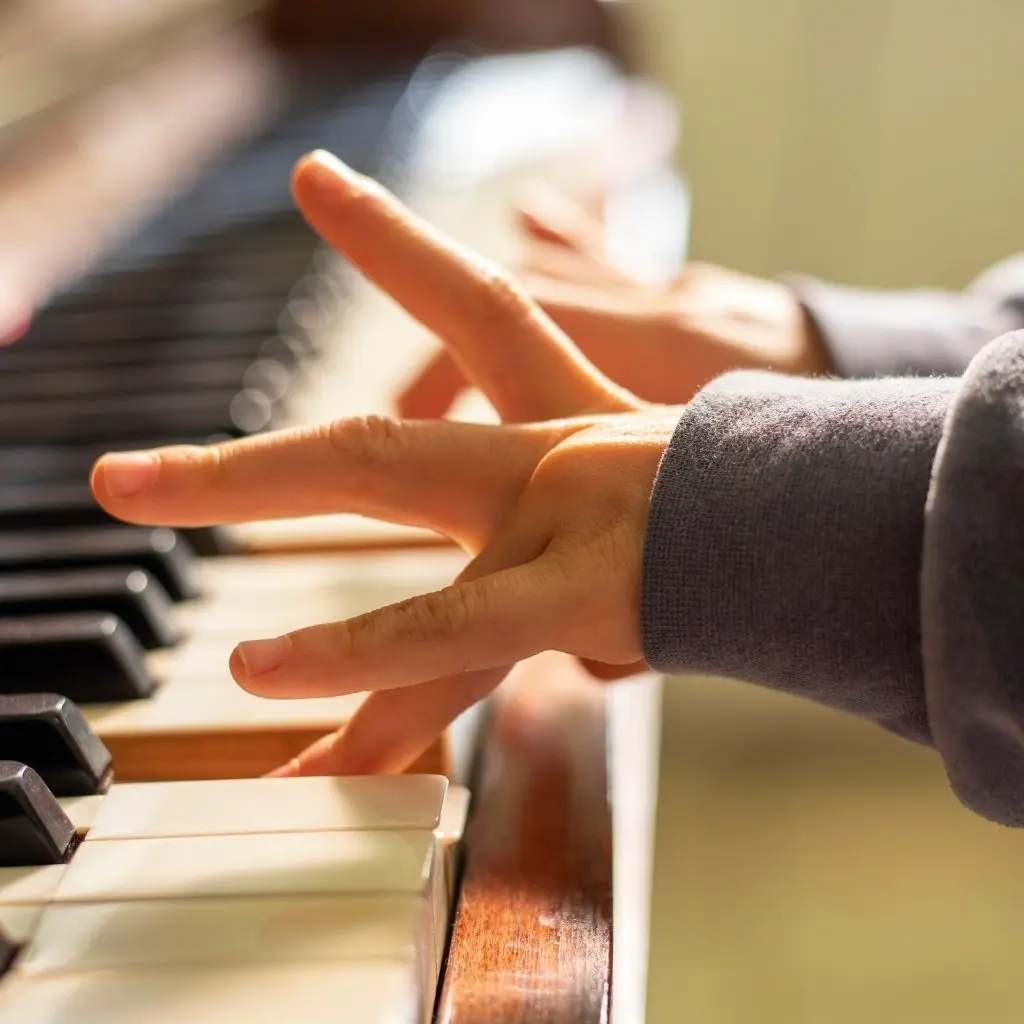
Benefits of Starting Piano Lessons at Various Ages
The advantages of learning the piano manifest differently depending on when lessons begin. Whether the student is a preschooler, a teenager, or an adult, piano lessons offer unique benefits tailored to their stage of life. Understanding these benefits can help parents and aspiring pianists decide on the right time to start.
Early Childhood (Ages 3–5)
Starting piano lessons in early childhood introduces children to music in a playful and exploratory way. At this age, children are naturally curious and eager to engage with new experiences. Short, engaging lessons focusing on rhythm games, finger exercises, and simple tunes help foster a love for music.
The cognitive benefits of early music education are well-documented. Studies show that learning music at a young age enhances memory, spatial reasoning, and language skills. These foundational skills often translate to improved performance in other academic areas.
For parents in Auckland, group classes for younger children are a popular option. Many local music schools and teachers, including Timothy William, offer age-appropriate programs to introduce music in an interactive, low-pressure environment.
Primary School Age (Ages 6–12)
This age range is often considered the “golden age” for starting piano lessons. By this stage, children have developed the physical and cognitive abilities needed to grasp musical concepts, follow structured lessons, and build technical skills. They are also more capable of practicing independently, a critical factor in long-term success.
At the primary school level, students can start learning to read sheet music, understand rhythm patterns, and play more complex pieces. Teachers often find that children in this age group make rapid progress and display a strong capacity for creativity and musical expression.
Additionally, starting piano lessons during primary school sets a solid foundation for advanced study. With consistent practice, students can explore a wide repertoire and even participate in performances, competitions, or school music programs.
Teenagers (Ages 13–18)
Teenagers bring unique strengths to piano learning. Their advanced cognitive development allows them to understand complex musical theory and techniques. Moreover, many teens have a well-defined sense of their musical preferences, which can guide their learning journey.
Starting piano lessons during adolescence can help reduce stress, boost self-esteem, and provide a productive outlet for self-expression. Teens who invest time in music often report a greater sense of accomplishment and improved focus, which can benefit their academic and personal lives.
In Auckland, piano lessons for teenagers often include opportunities to explore different musical styles, from classical to contemporary. This diversity keeps learning engaging and relevant to their interests.
Adults (Ages 18+)
Learning the piano as an adult is a fulfilling experience that combines the joy of music with personal growth. Many adults approach lessons with a clear goal, whether to master a favourite piece, develop a new hobby, or revive a childhood passion. Adult learners benefit from their ability to focus and self-direct their practice sessions.
For adults in Auckland, flexible lesson schedules and tailored approaches offered by teachers like Timothy William make piano learning accessible and enjoyable. Whether starting from scratch or refreshing previous skills, adults often find that playing the piano is a rewarding way to relax and connect with their creativity.
Seniors (Ages 60+)
It’s never too late to learn the piano, and seniors are increasingly discovering the benefits of music education. Studies show that learning an instrument in later life enhances cognitive health, improves memory, and boosts emotional well-being. For many, piano lessons become a fulfilling and therapeutic activity.
Seniors often approach piano learning with patience and a love for music, focusing on personal enjoyment rather than external achievement. Local teachers in Auckland frequently accommodate seniors with customised lessons that consider their physical and cognitive needs, ensuring a positive and accessible experience.
Key Takeaways
No matter when piano lessons begin, the benefits are undeniable. Early starters gain cognitive and emotional advantages, while older students bring focus and passion to their learning. The key is finding the right balance between readiness and interest, ensuring a positive and enjoyable journey for every student.
Ultimately, the best age to start piano lessons is when the student is ready and eager to learn, regardless of their stage in life. With a supportive teacher and a tailored approach, anyone can unlock their musical potential.
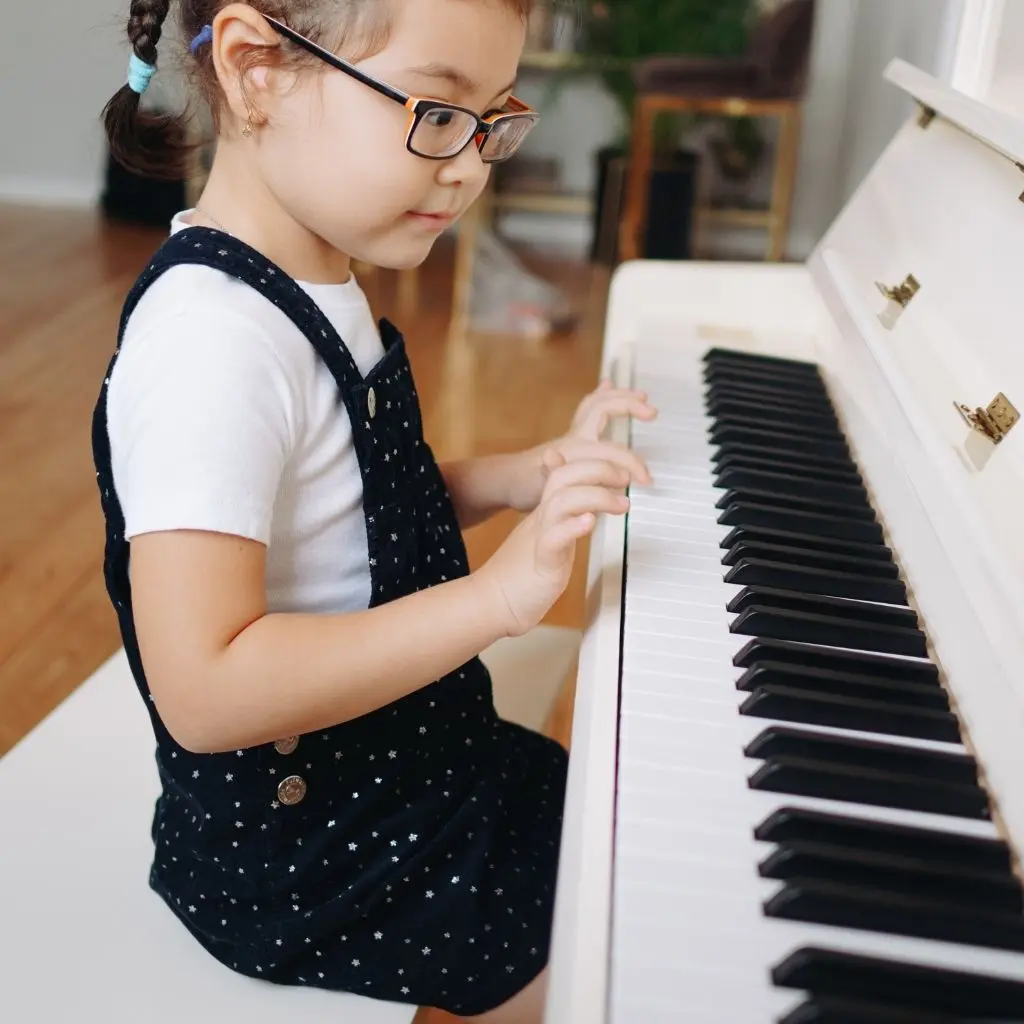
How to Prepare for Piano Lessons
Starting piano lessons is an exciting journey, but proper preparation can significantly enhance the learning experience. Whether you’re a parent preparing your child or an adult beginner, a thoughtful approach can set the stage for success. Below, we’ll discuss essential steps to take before beginning lessons, including choosing the right equipment, creating a practice environment, and setting realistic goals.
Selecting the Right Instrument
Choosing the right piano is one of the most important steps in preparing for lessons. Beginners often wonder whether to invest in an acoustic piano or an electronic keyboard. Both have their advantages:
- Acoustic Piano: Offers a rich sound and dynamic response, making it ideal for long-term learning. However, it requires more space and maintenance, including regular tuning.
- Electronic Keyboard: A more affordable and portable option, especially for beginners. Modern keyboards with weighted keys mimic the feel of an acoustic piano, making them a practical choice for starting lessons.
In Auckland, several music stores provide rental and purchase options for pianos and keyboards. Consulting your piano teacher, such as Timothy William, can also help you make an informed decision tailored to your needs and budget.
Creating a Practice Environment
A dedicated practice space is essential for consistent progress. The ideal setup includes:
- A quiet, well-lit area free from distractions.
- A comfortable bench or chair that promotes proper posture.
- An adjustable stand for sheet music or a tablet.
Consistency is key, so establishing a regular practice schedule is just as important as the physical setup. For young learners, incorporating short and frequent practice sessions works best, while older students may benefit from longer, focused practice times.
Setting Realistic Goals
Goal-setting is a powerful motivator for piano students of all ages. Whether it’s learning a specific song, mastering a scale, or preparing for a performance, having clear objectives provides direction and a sense of accomplishment.
Parents should work with their child’s teacher to set age-appropriate goals. For adult learners, communicating personal goals with the teacher helps create a tailored lesson plan. In Auckland, experienced teachers like Timothy William focus on customised learning paths to ensure students stay motivated and achieve their aspirations.
Introducing Music Theory
Basic music theory can enhance the early stages of piano learning. Understanding concepts like note values, rhythms, and scales provides a solid foundation for playing. Many teachers incorporate theory into lessons, but parents or students can start exploring simple theory games or apps before the first lesson to build familiarity.
Encouraging a Positive Mindset
A positive attitude towards learning is crucial, especially for younger students. Parents can play a supportive role by celebrating progress and making practice sessions enjoyable. For adult learners, patience and persistence are key. Remember, progress takes time, and every step forward is a victory.
Local music communities in Auckland often host recitals or informal gatherings, which can inspire students and provide valuable opportunities to showcase their progress. Engaging with these events can boost confidence and create a sense of belonging within the musical community.
Enrolling in Lessons
The final step is finding the right teacher. A skilled and supportive instructor can make all the difference in a student’s musical journey. When searching for a teacher in Auckland, consider factors such as teaching style, qualifications, and experience with students of similar age and skill level.
Teachers like Timothy William, with their tailored approach and deep expertise, can guide students through every stage of learning, ensuring a rewarding and fulfilling experience.
Key Tips for Success
Here’s a quick summary of preparation tips:
- Choose the right instrument for your needs and budget.
- Create a distraction-free practice space with proper seating and equipment.
- Set achievable goals to keep lessons motivating and enjoyable.
- Introduce basic music theory concepts to ease the learning process.
- Foster a positive mindset to encourage consistent effort and progress.
- Select an experienced teacher who aligns with your learning objectives.
By preparing thoughtfully, students of all ages can approach piano lessons with confidence and enthusiasm, paving the way for a lifelong love of music.
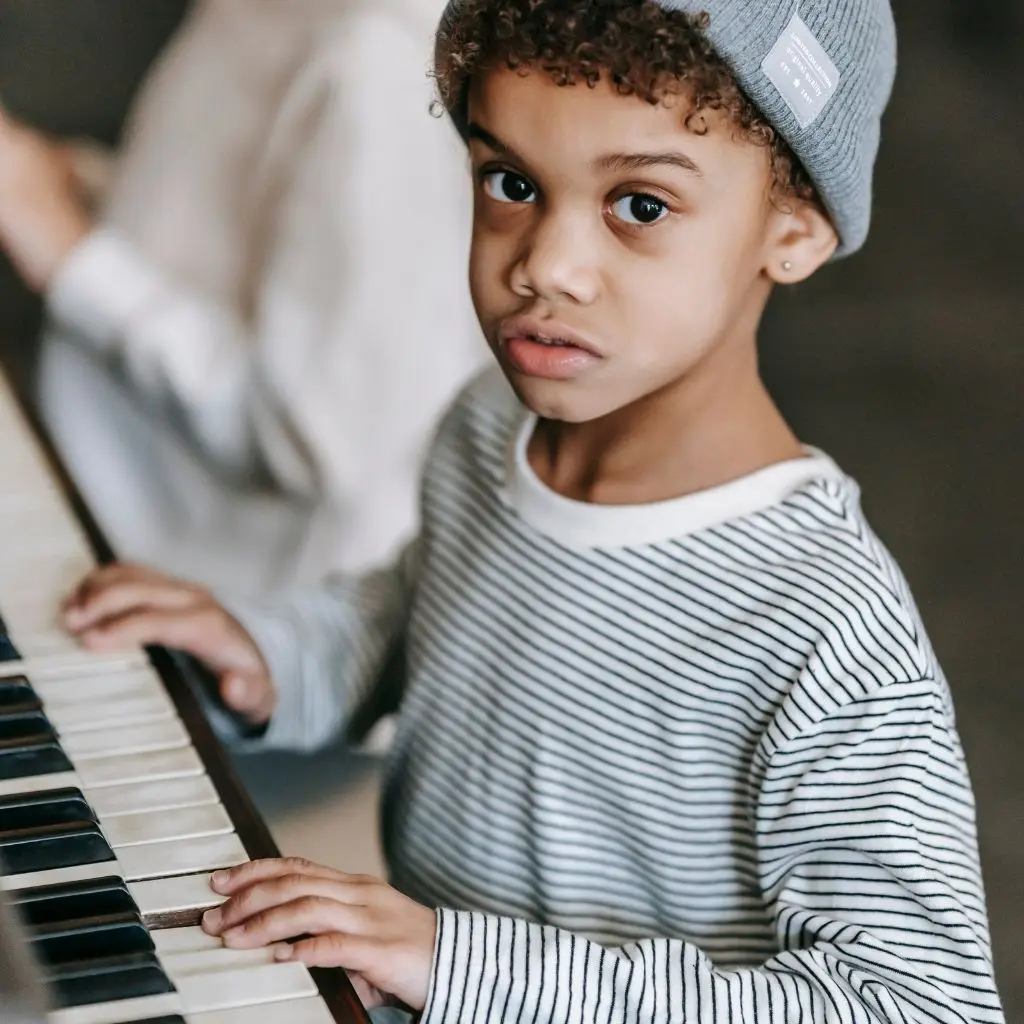
Why Choose Timothy William for Piano Lessons in Auckland
Finding the right piano teacher is crucial to fostering a student’s love for music and ensuring their progress. Timothy William, a professional music teacher based in Auckland, offers a unique and comprehensive approach to piano education, making him a top choice for aspiring pianists of all ages. With years of experience, a passion for music, and a dedication to personalised teaching, Timothy has built a reputation for excellence among Auckland’s music community.
Personalised and Student-Centred Approach
Timothy William believes that every student is unique, and his teaching approach reflects this philosophy. He tailors each lesson to suit the student’s individual goals, learning style, and skill level. Whether a student is a complete beginner, a child with budding interest, or an adult seeking to rekindle their passion for music, Timothy ensures the lessons are engaging, effective, and inspiring.
For younger learners, Timothy incorporates fun and interactive methods, such as games and simple exercises, to keep them motivated and excited about their progress. For older students, he blends technical mastery with creative expression, allowing them to explore diverse musical styles while building a strong foundation in theory and technique.
This personalised approach ensures that each student feels supported and empowered, leading to greater confidence and a deeper connection to music.
Deep Expertise and Extensive Experience
With a strong background in music education and years of teaching experience, Timothy William is equipped to guide students through every aspect of piano learning. He specialises in various genres, including classical, contemporary, jazz, and more, providing students with a versatile and well-rounded education. His ability to break down complex concepts into accessible steps makes him an excellent instructor for learners at all levels.
Timothy has successfully prepared students for music exams, performances, and competitions, helping them achieve outstanding results. His expertise extends to advanced techniques, performance preparation, and improvisation, allowing ambitious students to reach their full potential. This proven track record of success positions Timothy as one of Auckland’s most trusted music educators.
Supportive and Encouraging Learning Environment
Learning an instrument can be challenging, but Timothy ensures that his lessons are conducted in a positive and encouraging atmosphere. His patient and understanding teaching style helps students overcome challenges and build resilience. Mistakes are seen as valuable learning opportunities, fostering a growth mindset that benefits students beyond their music lessons.
Parents of younger students often praise Timothy for his ability to connect with children and make learning enjoyable. Adult learners appreciate his supportive approach, which allows them to progress at their own pace without feeling rushed or overwhelmed.
Local Insights and Community Connections
Based in Auckland, Timothy William has a deep understanding of the city’s vibrant music culture and educational opportunities. He leverages this knowledge to enrich his lessons by connecting students with local music events, competitions, and performance opportunities. This exposure not only motivates students but also helps them build confidence as they share their talents with the wider community.
Timothy is well-acquainted with the requirements of Auckland’s school music programs and examination boards, such as ABRSM and Trinity College. He provides tailored support to students preparing for exams or auditions, ensuring they meet and exceed the necessary standards.
Flexible and Convenient Lesson Options
In today’s fast-paced world, flexibility is essential. Timothy offers a range of lesson formats to accommodate the diverse needs of his students. Whether you prefer in-person lessons at his studio, home visits, or online sessions, Timothy ensures a seamless learning experience that fits your schedule.
For families with busy routines, the convenience of online lessons can be a game-changer. Timothy uses high-quality video conferencing tools and shares digital resources to maintain the same level of engagement and effectiveness as in-person lessons. This adaptability has made his services accessible to students across Auckland and even beyond.
Affordable and Transparent Pricing
Timothy William is committed to making quality music education accessible to everyone. He offers competitive and transparent pricing, ensuring families and individuals can invest in their musical journey without financial strain. His lessons are structured to provide maximum value, combining expert instruction with personalised support to help students achieve their goals.
A True Passion for Music Education
At the heart of Timothy’s teaching is his genuine passion for music and education. He views piano lessons as more than just technical training—they are an opportunity to instil a lifelong love for music in his students. This passion is evident in every lesson, inspiring students to reach new heights and discover the joy of musical expression.
His enthusiasm is contagious, and many of his students find themselves not only improving their skills but also developing a deeper appreciation for music as an art form.
Contact Timothy William Today
If you’re ready to embark on your piano journey or help your child unlock their musical potential, Timothy William is the ideal guide. With his expertise, personalised approach, and dedication to student success, you can be confident in choosing him as your piano teacher in Auckland.
- Phone: +6421539273
- Email: tim@timothywilliam.co.nz
Join the growing community of students in Auckland who are transforming their lives through music with Timothy William’s guidance. Whether you’re a beginner or an advanced student, his lessons will empower you to achieve your musical dreams.
Frequently Asked Questions
Below are answers to some of the most common questions about piano lessons and finding the best age to start. These insights will help parents and aspiring pianists in Auckland make informed decisions about their music education journey.
1. What is the best age to start piano lessons?
The best age to start piano lessons typically ranges from 5 to 7 years old, as children at this age have developed the physical and cognitive skills necessary to learn effectively. However, younger children can begin with exploratory music programs, and adults can start at any age with the right teacher and approach.
2. Can my 3-year-old start piano lessons?
While 3-year-olds may not yet have the hand size or attention span for traditional piano lessons, they can benefit from early music programs focusing on rhythm, movement, and musical games. These foundational activities prepare them for structured lessons when they’re older.
3. Is it too late for adults to learn the piano?
Absolutely not! Adults can start piano lessons at any age. In fact, adult learners often progress quickly due to their ability to focus, self-motivate, and apply consistent effort. Piano lessons can be a rewarding and fulfilling experience for adults, whether they’re beginners or revisiting the instrument after a long break.
4. How often should students practice?
Regular practice is essential for progress. Beginners should aim for 15–30 minutes of practice daily, gradually increasing as their skills develop. For younger students, shorter, more frequent sessions are often more effective. Consistency is key to building technique and confidence.
5. Do I need to buy a piano to start lessons?
While owning a piano or keyboard is ideal for regular practice, it’s not mandatory to start lessons. Many students begin with a rented or borrowed instrument. For those investing in their own instrument, keyboards with weighted keys are a great starting point for beginners.
6. How can I tell if my child is ready for piano lessons?
Look for signs of readiness such as an interest in music, the ability to follow instructions, and basic fine motor skills (e.g., writing or drawing). Discussing these factors with a piano teacher can also help determine whether your child is ready to begin lessons.
7. What kind of piano should I buy for a beginner?
For beginners, a digital keyboard with weighted keys is a budget-friendly and space-saving option. If you have the space and budget, an acoustic piano offers a superior playing experience. Consult your teacher to determine the best choice for your needs.
8. How long does it take to learn to play the piano?
The time it takes to learn piano depends on the student’s goals, practice habits, and dedication. Beginners typically see noticeable progress within a few months, while mastering advanced pieces can take years. With consistent practice and guidance, students can enjoy playing at their own pace.

